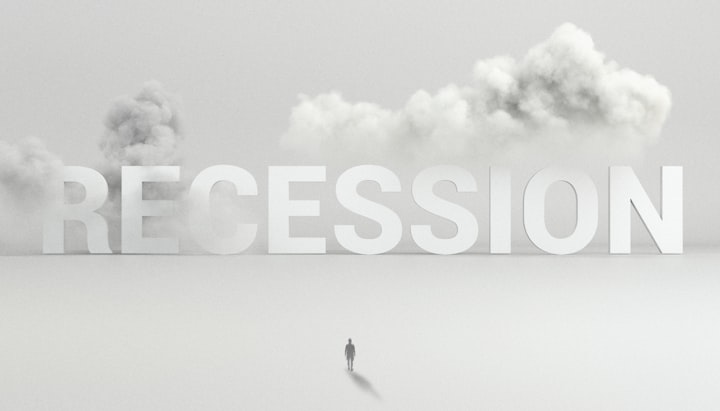What Happens When a Bank Goes Bankrupt?
A Guide on what to do after a bank got bankrupt
Imagine you wake up one day and find out that the bank where you keep your life savings has gone bankrupt. What would you do? Panic? Cry? Curse the universe? All of the above?
While it's unlikely to happen, it's not impossible. Banks are not immune to financial troubles, and some of them do go bankrupt from time to time. When that happens, it can have serious consequences for the bank's customers, the economy, and the society as a whole.
So, what really happens when a bank goes bankrupt? Let's take a look at the process, the consequences, and the lessons we can learn from it.
The Process of Bankruptcy
First, let's define what we mean by "bankruptcy". Bankruptcy is a legal process that happens when a person or a business can no longer pay its debts. In the case of a bank, bankruptcy means that the bank is unable to meet its obligations to its creditors, depositors, and other stakeholders.
When a bank goes bankrupt, the following steps typically happen:
- The bank declares bankruptcy. This means that it files for bankruptcy protection under the relevant laws and regulations.
- The bank's assets are liquidated. This means that its assets, such as loans, securities, and other investments, are sold off to repay its debts.
- The bank's liabilities are settled. This means that its creditors, including depositors, bondholders, and other lenders, are paid off from the proceeds of the asset sales.
- The bank ceases to exist. This means that it is no longer able to operate as a bank, and its customers need to find other banks to keep their money.
The Consequences of Bankruptcy
The consequences of a bank's bankruptcy can be severe and far-reaching. Here are some of the most common ones:
- Depositors can lose their money. If a bank goes bankrupt, its depositors may lose some or all of their deposits, depending on the amount of the deposit and the coverage provided by the deposit insurance scheme. In some countries, such as the US, the deposit insurance scheme is funded by the government and covers up to a certain amount of deposits per depositor per bank. In other countries, the deposit insurance scheme is funded by the banks themselves and may not cover all deposits.
- Creditors can lose their investments. If a bank goes bankrupt, its bondholders and other creditors may lose some or all of their investments, depending on the terms of the securities and the priority of their claims in the bankruptcy process.
- The economy can suffer. If a bank goes bankrupt, it can have a ripple effect on the economy, especially if it's a large bank that's heavily interconnected with other banks and financial institutions. The bankruptcy can cause a liquidity crisis, a credit crunch, and a loss of confidence in the banking system, which can lead to a recession or a financial crisis.
- The society can feel the impact. If a bank goes bankrupt, it can also have social consequences, such as job losses, poverty, and inequality. The bank's failure can affect not only its customers and investors but also its employees, suppliers, and the communities where it operates.
The Lessons to Learn
What can we learn from a bank's bankruptcy? Here are some of the lessons to keep in mind:
- Diversify your investments. Don't put all your eggs in one basket, especially if that basket is a bank. Spread your investments across different assets, such as stocks, bonds, real estate, and commodities, to reduce your risk.
- Know your bank's health. Keep an eye on your bank's financial performance and stability. Check its credit rating, capital adequacy ratio, non-performing loan ratio, and other indicators that can tell you how well the bank is doing. If you have any doubts or concerns, don't hesitate to ask your bank for more information or to consider moving your money to a safer institution.
- Use deposit insurance wisely. Deposit insurance can be a useful tool to protect your deposits, but it's not foolproof. Make sure you understand the coverage limits and the terms and conditions of the insurance scheme. Also, don't rely solely on deposit insurance to protect your deposits. Spread your deposits across different banks and keep them within the coverage limits.
- Support regulation and supervision. Banks are highly regulated and supervised to ensure their safety and soundness. Support the regulators and supervisors who oversee the banking system and hold them accountable for their actions. Also, support the reforms and improvements that can enhance the resilience and stability of the banking system.
- Be prepared for the worst. While the probability of a bank's bankruptcy is low, the consequences can be severe. Be prepared for the worst-case scenario by having a plan in place. Know what you would do if your bank goes bankrupt, how you would access your money, and where you would go for help and advice.
In conclusion, a bank's bankruptcy can have serious consequences for its customers, the economy, and society. While it's rare, it's important to be aware of the risks and take measures to protect yourself and your investments. By diversifying your investments, monitoring your bank's health, using deposit insurance, demanding transparency and accountability, and supporting regulations and reforms, you can minimize your exposure to the risks of a bank's bankruptcy and contribute to a more stable and resilient banking system.
About the Creator
Billionaire hustler
Embrace the struggle, push yourself to new heights, and never give up. Warriors rise up and fight back. The power to change your life is in your hands. Together, we are unstoppable.







Comments
There are no comments for this story
Be the first to respond and start the conversation.